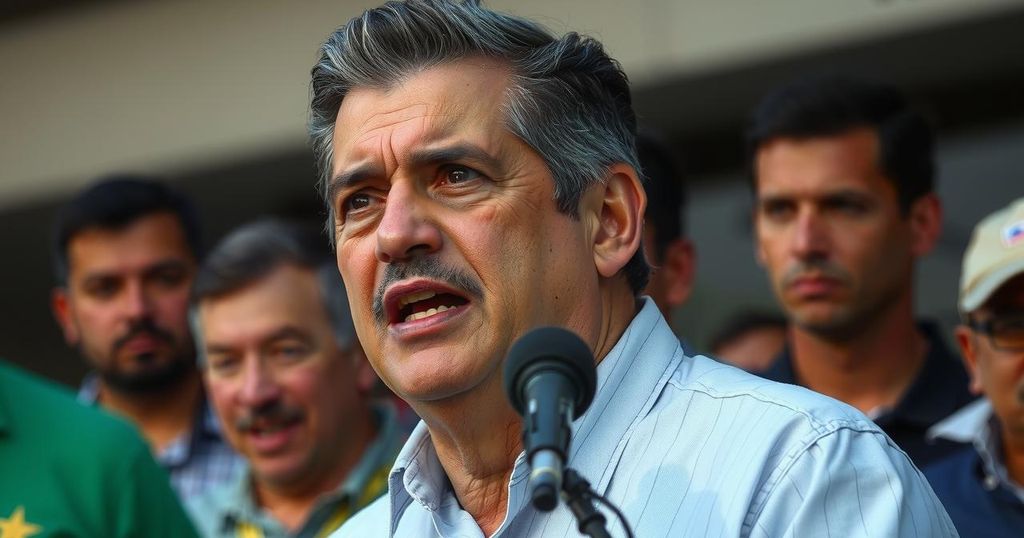Venezuela’s government signals intentions to arrest opposition leader González, who alleges victory over Maduro. Following an arrest warrant, he has since gone into exile in Spain but seeks to return. Meanwhile, Maduro prepares for a third term amid international claim of electoral fraud.
The Venezuelan government has reaffirmed its commitment to arrest the opposition leader, who has claimed victory over President Nicolás Maduro in the previous year’s election, as expressed by a threat from the congress controlled by Maduro’s party. Following a judge’s issuance of an arrest warrant linked to an investigation concerning the election, González fled to Spain in September. He has recently stated his intention to return and assume power, although the logistics of this return remain unclear given the ruling party’s stronghold over governmental and military institutions.
During his time abroad, González is currently engaged in a tour of Latin America, with stops in Argentina and Uruguay, and aims to meet with President Biden in the United States. Rodríguez, newly re-elected president of the National Assembly, remarked on González’s potential return, stating that any attempt would lead to his immediate arrest by deputies who uphold the law and order of the state. In parallel, President Maduro received an invitation to be sworn in for a third consecutive term, after having allegedly won the July 28 election under contentious circumstances.
The electoral process this year has faced significant scrutiny due to a lack of transparency from officials, with many in the opposition contesting the results. Despite Maduro’s claims and the support of his loyal electoral council, the presented evidence from opposition parties, indicating that González secured double the votes, has been met with international support, as both the United States and several European governments recognize González as the legitimate leader. This tension culminates in an environment ripe for political conflict.
The political landscape in Venezuela remains fraught with tension and challenges to the legitimacy of the current government under Nicolás Maduro. Following the contentious election in July, claims of irregularities have arisen, with substantial opposition support asserting that their candidate, González, was the rightful winner. These developments have led to significant international backlash against the Maduro administration, further complicating Venezuela’s domestic politics where governmental control stretches deeply into the judicial and electoral arenas. The impending potential arrest of González exposes the ongoing struggle between authoritarian governance and calls for democratic governance.
In conclusion, Venezuela’s political strife is evident with the ruling party’s efforts to arrest opposition leader González, who insists he defeated Maduro. González’s exile and planned return bring scrutiny to an already controversial election. Both national and international reactions highlight deep divisions within the country’s political framework, as the struggle for legitimacy continues amidst accusations of electoral fraud and calls for accountability. As Venezuela grapples with its political future, the ramifications of these tensions will undoubtedly shape its trajectory in the coming months.
Original Source: www.washingtonpost.com






